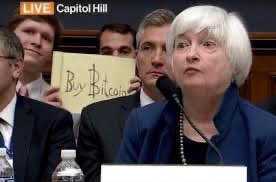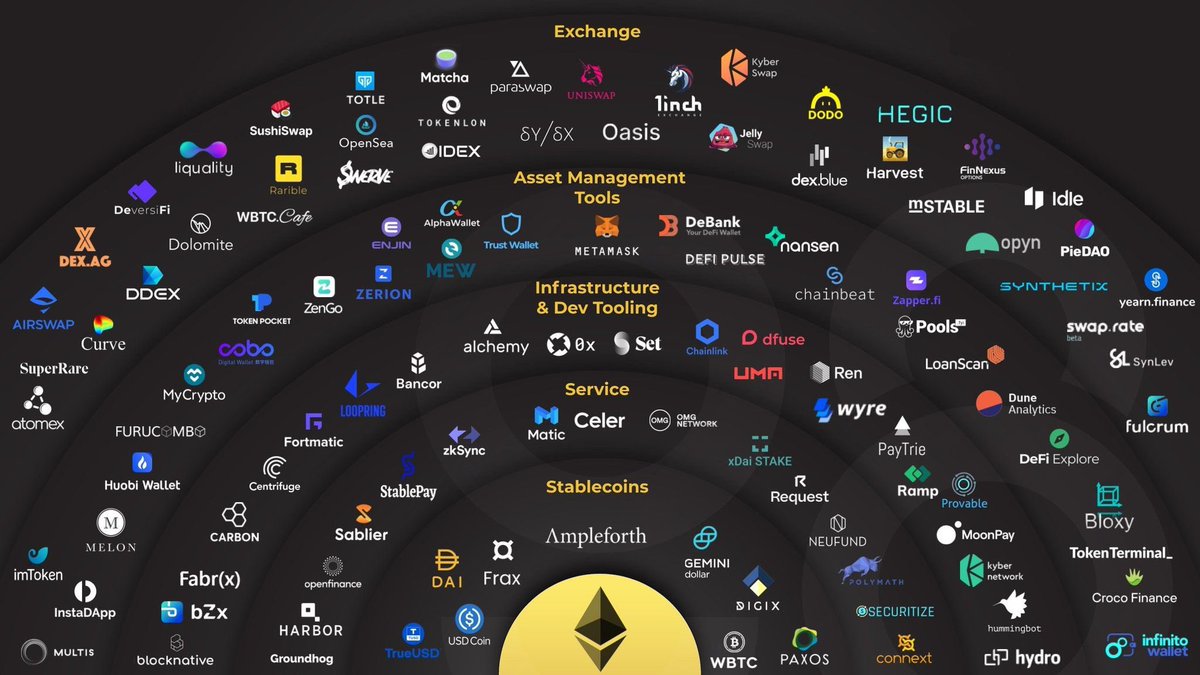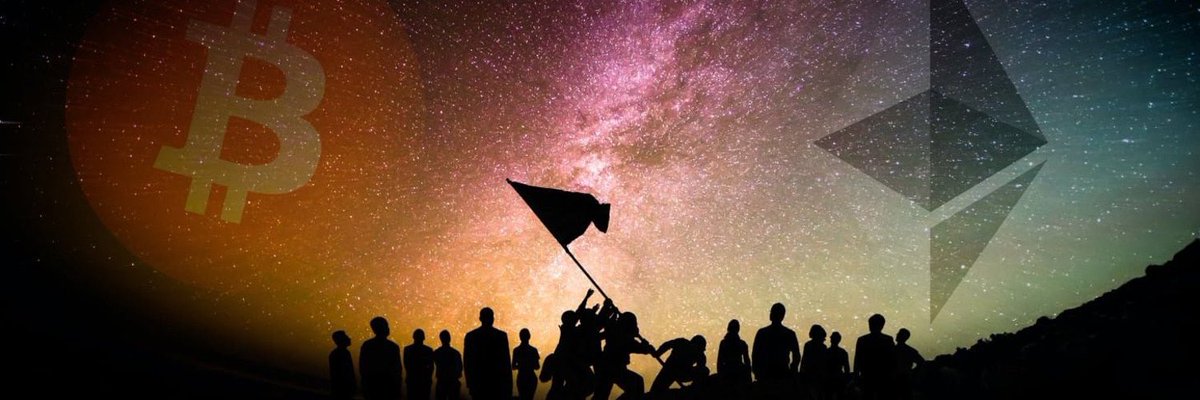A quick thread to help newcomers establish a framework to understand #Bitcoin  and #Ethereum. My attempt at an ELI5.
and #Ethereum. My attempt at an ELI5.
 and #Ethereum. My attempt at an ELI5.
and #Ethereum. My attempt at an ELI5.
Paper (fiat) currencies are problematic, because they’re controlled by people. In US, the federal reserve controls the money - they decide the supply & inflation rate to control the value of the dollar. Their job is so important because of how important the dollar is globally.
Historically gold is the hedge against inflation. Scarce asset, sound store of value.
But our dollars are not backed by gold; they’re backed... by the government. This creates a dangerous and incestuous relationship between the stock market, the dollar, and the Federal Reserve.
But our dollars are not backed by gold; they’re backed... by the government. This creates a dangerous and incestuous relationship between the stock market, the dollar, and the Federal Reserve.
Bitcoin is like digital gold. It is a decentralized digital currency hard coded to cap issuance at 21 million coins. Scarcity, portability, plus a sound monetary policy that doesn’t allow for inflation, makes bitcoin possibly the hardest and most sound store of value of all time.
Similarly, ETH is a digital currency, plus a decentralized platform to build decentralized applications on. In addition to its money properties, you can think of Ethereum like the decentralized internet, and right now the popular use case is for decentralized finance ( #DeFi).
On top of Ethereum is a vibrant ecosystem of applications that allow any user with an internet connection to participate in permissionless #DeFi services:
Be their own bank (Aave, Compound, Maker)
Exchange assets (Sushi, Uniswap)
Use stablecoins pegged to the dollar (dai, USDC)
Be their own bank (Aave, Compound, Maker)
Exchange assets (Sushi, Uniswap)
Use stablecoins pegged to the dollar (dai, USDC)
Each technology is underpinned by the blockchain. Validators (computers, and soon ETH holders) verify transactions done on the network thru a consensus mechanism (all computers need to agree). The verified transactions are posted to a public ledger. Validators get paid in fees.
Every transaction performed on ETH, for example, requires a small payment of ETH (called gas) that’s paid to validators. Similarly, a small BTC-denominated fee is paid to BTC validators.
These fees pay for the security of each network. More usage = more fees = more security.
These fees pay for the security of each network. More usage = more fees = more security.
The big paradigm shift is that owning BTC and ETH isn’t like owning stock. Crypto utility is myriad and specific to the coin and its project. In ways, each can be like owning gold (more BTC). For ETH and the coins related to the projects built on top of it, the utility is myriad.
#ETH is three asset superclasses at once:
A commodity as gas. You need to buy and own ETH to do anything in the ecosystem, including use apps.
A yield bearing asset with staking. In ETH2, users can lock up their ETH to validate blocks and earn fees.
And a store of value asset.
A commodity as gas. You need to buy and own ETH to do anything in the ecosystem, including use apps.
A yield bearing asset with staking. In ETH2, users can lock up their ETH to validate blocks and earn fees.
And a store of value asset.

 Read on Twitter
Read on Twitter





